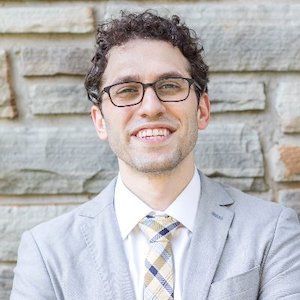Article
Hearing Loss Linked to Higher Frequency of Fatigue for Older Adults
Author(s):
This new data demonstrated that hearing loss led to worse outcomes for older individuals, and fatigue assessments may be needed in the future to further capture fatigue’s multidimensionality.
Nicholas S. Reed, AuD
Credit: Twitter

Loss of hearing is associated with a higher frequency of fatigue among middle-aged and older adults, according to new findings, even adjusting for lifestyle factors, demographics, and comorbidities.1
These findings resulted from a research letter which examined the effects of hearing loss on fatigue in older individuals, using nationally-representative survey data.
The research was authored by Nicholas S. Reed, AuD, from the Cochlear Center for Hearing and Public Health at Johns Hopkins Bloomberg School of Public Health.
“Understanding the association between hearing loss and fatigue is important for improving daily functioning among people with hearing loss and may help manage further downstream health outcomes,” Reed and colleagues wrote.
Background and Findings
The investigators utilized data drawn from the National Health and Nutrition Examination Survey (NHANES), a representative survey conducted in the US. The research team focused on the audiometry subsamples from two cycles of NHANES participants, specifically those in the age bracket of 20 - 69 years in the 2015 - 2016 cycle (n = 4582) and those aged 6 - 19 and ≥70 years in the 2017 - 2018 cycle (n = 3131).
They further restricted the sample to 3031 participants aged 40 years or older to examine age-related hearing loss. Fatigue was measured using a self-reported question that inquired about feeling tired or having low energy over the past couple weeks.
The options for responses included "not at all," "several days," "more than half the days," and "nearly every day." The investigators determined the better-ear 4-frequency pure-tone average (PTA) by averaging the audiometric hearing thresholds at 0.5, 1, 2, and 4 kilohertz.
The investigators assessed loss of hearing both categorically (above 25 decibels hearing level [dB HL] vs. ≤25 dB HL) and continuously (per 10 dB HL worse). To determine the association between fatigue and loss of hearing, the research team used multivariable-adjusted multinomial logistic regression.
The investigators accounted for the complex survey design and employed survey weights for nationally representative estimates. In the primary model, they adjusted for various factors including age, race, sex, and ethnicity, education, smoking and drinking habits, occupational and off-work noise exposure, and body mass index. In model 2, the team also adjusted for comorbidities as well as depressive symptoms.
The study also explored potential differences in the association between hearing loss and fatigue based on ethnicity, age, race, and sex.
Overall, the investigators concluded that, among this study of 3031 participants, 24% of participants had hearing loss. Those with hearing loss were also found to be more likely to experience fatigue, both for more than half the days and nearly every day.
The team’s findings remained consistent even after adjusting for comorbidities and depressive symptoms. Additionally, a higher degree of hearing loss was linked with a greater likelihood of experiencing fatigue nearly every day.
While there were some trends indicating stronger associations among younger, non-Hispanic White, and female participants, the statistical testing did not consistently support differential associations based on age, race, sex, and ethnicity.
“Further analysis examining the etiologies of hearing loss and the effects of hearing treatment and rehabilitation strategies on fatigue can inform management of fatigue and subsequent adverse health outcomes,” they wrote.
References
- Jiang K, Spira AP, Lin FR, Deal JA, Reed NS. Hearing Loss and Fatigue in Middle-Aged and Older Adults. JAMA Otolaryngol Head Neck Surg. Published online July 06, 2023. doi:10.1001/jamaoto.2023.1328.





